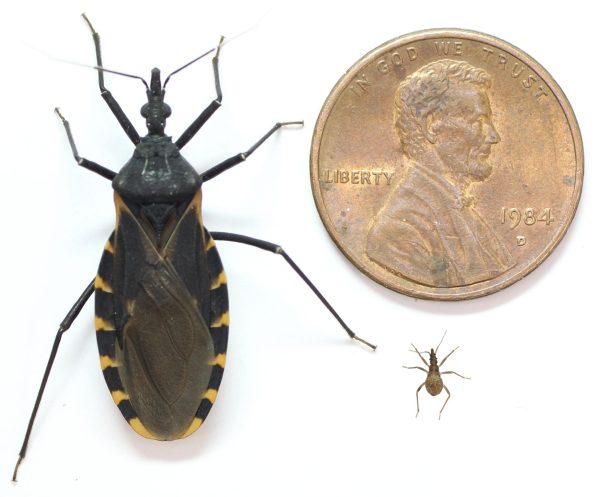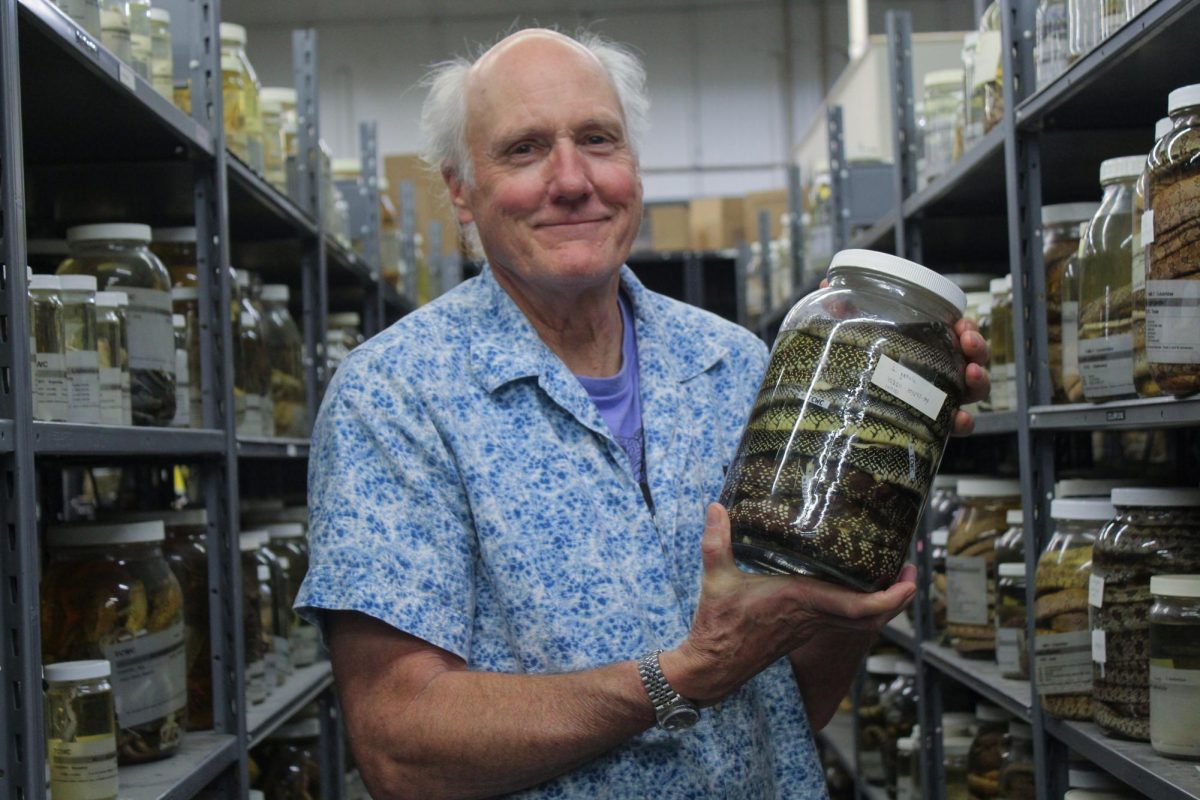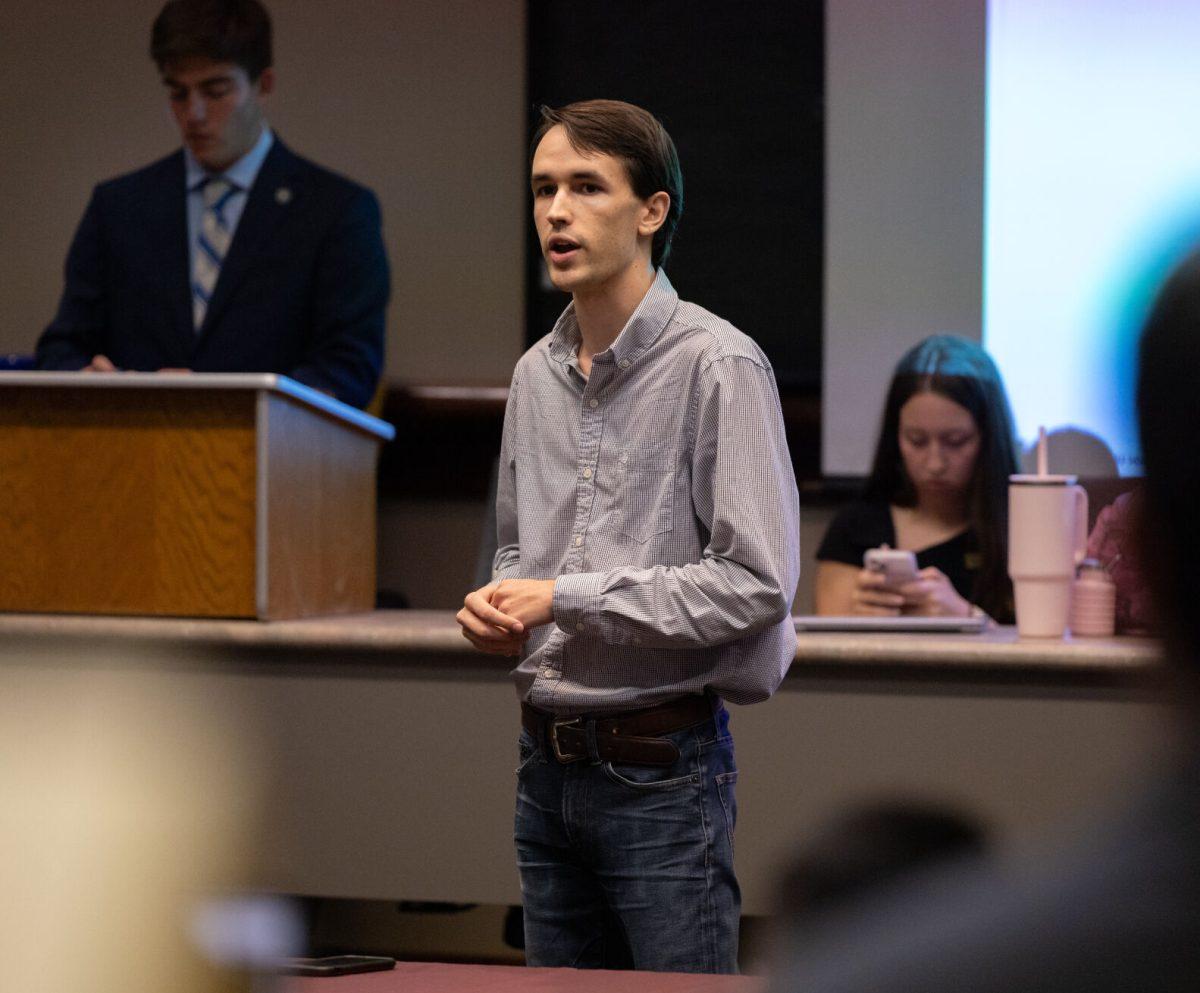New research has found that microscopic parasites found in two species of the Texas kissing bug, a blood-feeding insect prevalent in the Brazos Valley, can cause Chagas disease in pets, humans and wildlife.
Sarah Hamer, Ph.D., is a veterinary ecologist specializing in wildlife and zoonotic disease ecology and epidemiology. Her lab hopes to improve ecological health by studying disease-transmitting insects.
According to a study published by Hamer’s lab in 2024, 47% of kissing bugs collected from dog kennels in central and southern Texas were infected with Trypanosoma cruzi, the parasite causing Chagas disease.
“Chagas disease is what we call a neglected tropical disease,” said Ilana Mosley, a doctorate student studying parasitology in Hamer’s laboratory. “Unfortunately, that means that right now, we don’t have a lot of the answers in terms of why some people develop chronic disease manifestations and other people only have acute symptoms.”
The researchers found that the parasite feeds predominantly on dogs and humans, making monitoring vital because most human treatments only work if Chagas is caught early enough.
“But for pets and wildlife, the chronic stage can be lethal,” Mosley said. “Testing is rarely done, and there are limited treatment options.”
Mosley said most people with a T. cruzi infection are often asymptomatic and rarely get tested. However, results may not be concrete due to common false negatives even when testing occurs.
Kissing bugs spread T. cruzi through their feces and are known to defecate often. Most commonly, kissing bugs are attracted to body odor, moisture and heat, resulting in multiple ways humans can get infected.

“It usually happens when you are outside hiking or camping,” Mosley said. “But there is also the risk of blood transfusion, organ transplants, as well as congenital. Not properly washing fruits and vegetables that come from areas where kissing bugs are present.”
Hamer said the best way to prevent Chagas disease from spreading is to control populations of the kissing bugs by turning off lights at night, reducing woody debris and wildlife habitat around homes and regularly checking pets for lingering bugs. Hamer’s lab is researching ways to use insecticides to kill off kissing bugs that feed on pets without damaging the animal’s health — similar to common flea treatments.
“We’re also analyzing infected bugs in our lab to see what animals they previously fed on,” Hamer said. “If we can do that, we can see which members of the wildlife community are most important for supporting the bug populations and determine risk factors for humans and animals.”
Researchers stressed the need for health authorities to implement a systematic epidemiological surveillance program for T. cruzi infections in southwestern regions of the United States.
Mosley said she is researching ways to find certain biomarkers — measurable indicators of biological states or conditions — that could determine if animals and people can be predisposed to an acute or chronic infection of T. cruzi.
“There are some people who are infected and live their lives, and they’re completely fine,” Mosley said. “There are some people who are infected and develop chronic disease manifestations. I would hope that we would be able to find some sort of biomarkers to say that if you were to get infected, you’re more than likely going to be alright. Or, if you were infected, you’re a bit more predisposed, but here’s what we can do to mitigate your risk.”
A program named Hamer’s Laboratory’s Kissing Bug Community Science Program identifies bugs for free once a photograph is submitted, sharing resources on the best practices to identify look-like versus actual kissing bugs.
“We’ve received nearly 10,000 kissing bugs from over the past decade from this program from thousands of different Texans and people from across 28 states,” Hamer said. “The program gets these valuable insects into the hands of our research team so we can learn more about how to keep people and animals healthy.”

















Richard Day • Nov 18, 2024 at 5:11 pm
That’s a waste of money Elon should be able to take care of that. Everybody knows the disease is there would be nice to find a cure instead of telling us about it that we’ve known for years.
hunter hoots • Nov 19, 2024 at 8:52 am
well it is actully a waste of time for you to get on here and bad mouth the a and m aggie scientist. p.s//you probaly dont even have a high school graduation diploma and you probably live in yuor moms basemnet you jerk